Bourbon and Milk is an ongoing series that dives into the perplexing spaces parenting sometimes pushes us, and explores the unexpected ways writers may grow in them. If you’re interested in joining the conversation or contributing a Bourbon and Milk post, query Giuseppe Taurino at giuseppe@americanshortfiction.org.
Last year, with a nod towards the thankfulness many of us associate with the holidays—a thankfulness steeped in both the warmth and the insanity of family—I dedicated a holiday season Bourbon and Milk (which you can read here) to literary parents and their children. Towards that end, I asked five writer-parents to identify and write about “crappy” literary parents, and five non-parents to chime in on “exemplary” ones. The responses were so varied and, well, terrific, that I’ve gone ahead and decided to bring the holiday post back. Same prompt, different cast of talented writers.
This year’s group of writers once again took my relatively rudderless prompts and transformed them into tight micro-essays filled with beauty, humor and reflection on everything from the mother in Edward P. Jones’ “The First Day” to Grimm’s fairy tales to the auto-fictional Karl Ove Knausgaard. To reiterate last year’s intro: whether you have kids or not, aspire to birth a village, or plan to do your part to keep the world’s population in check, these brief meditations will, if nothing else, elicit a deeper appreciation for the clusterfuck that is parenthood—in all its decidedly gray incarnations.
Happy Festivus.
_______________________________________________________________________________________________________________________________________________
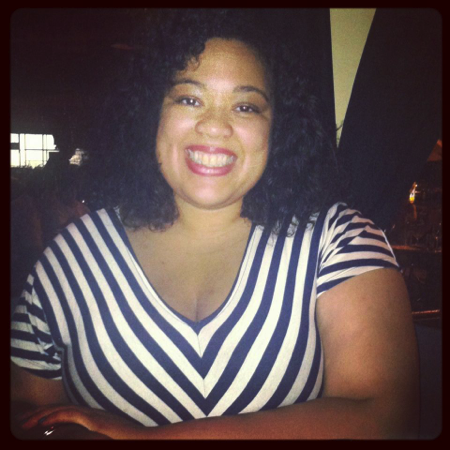
There is a sweetness to Edward P. Jones’ “The First Day”—from the brown sugar swirled oatmeal and Dixie Peach and quite possibly fictional gardenia perfume of the first paragraph, through the mother’s quivering lip as she leaves her child at the school where she has at last been successfully enrolled. But what gives this story its teeth are its opening lines: “In an otherwise unremarkable September morning, long before I learned to be ashamed of my mother…”
That coming shame looms over the whole story and establishes the mother as an exemplary parent in a world that is constantly telling her she is less than. The mother tries to register her daughter at the wrong school, and is flustered and distressed to find that the place she has prepared herself for her child to attend is not the school they are zoned for. At the second school, the mother requires help completing the registration paperwork because she cannot read. These things do not faze the child yet, but we understand already that they will someday.
As a non-parent, I find the ordinary letting go required by parenting somewhat terrifying, as in, I often do not understand how parents survive the physical anxiety of having to send their child away from them and into the world as it is. I worry sometimes that if I had my own child I would either become the worst sort of helicopter parent, or be cold and distant for fear that admitting the depth of my love would jinx us both, the parental equivalent of the woman who walks into the party and talks to every man but the one she loves. Just imagining the anxiety involved in parenting makes me want to call my parents and apologize for every reckless thing I have ever done with myself. But it has always seemed to me that the crucial and cruelest part of parenting is learning how and when to let go of a person everything in you says to hold on to forever, and the mother in this story has that down.
What the mother in “The First Day” faces is crueler than the ordinary kind of letting go—she knows that giving her child the life she wants for her means relinquishing her child to a world that will teach her to read and write, but will also teach her that the world sees her mother as poor and black and ignorant, may even teach her to be of that world. This child will go and keep going. This mother will push her to do so, at costs it will take the child years to understand.
In the space of the story, we don’t make it past the first day. We don’t make it past the moment when the lingering sounds of the mother’s footsteps are everything comforting in the world as the child heads toward the classroom. But there is that first sentence to haunt us, to tell us what’s coming, to tell us that the mother, who may not be formally educated, but knows what’s what, understands the stakes and will still keep walking away when she has to, quivering lip and all.
Danielle Evans is author of the short story collection Before You Suffocate Your Own Fool Self. Her stories have appeared in The Paris Review, A Public Space, The Best American Short Stories and New Stories from the South. She teaches in the MFA program at the University of Wisconsin, Madison.
*
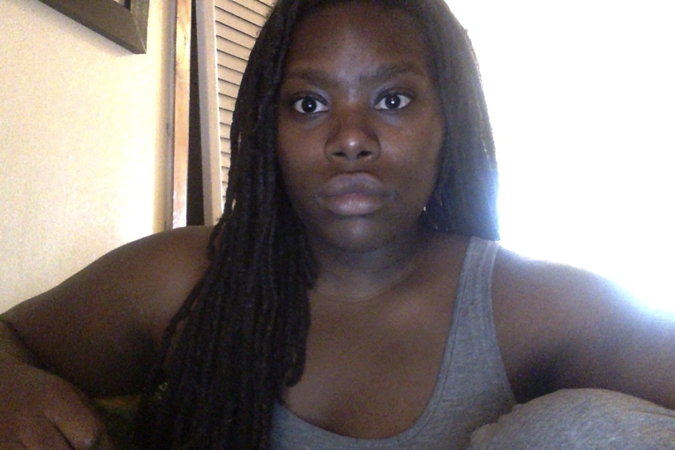
I read Betty Smith’s A Tree Grows in Brooklyn every summer, sometimes twice a summer, from the ages of 10 to 18. I loved the characters so much that I wished that they were black like me. I would reread certain passages, looking for clues. The Nolans had to share something with my family, I was sure, for me to understand them so deeply. I underlined a reference to “black Irish,” halfheartedly taking it as vindication, even though I knew that this was implausible.
I was self-aware enough to know why I identified so strongly with Francie Nolan, the main character. She was a bookish, sensitive, loving daughter in a poor family, desperate for an education. I was a bookish, sensitive, loving daughter in a poor family, trying to remind myself that the discomfort of an all-white prep school was worth it for a hard-won education. It was easy to see myself in Francie. But Katie Nolan, her mother, was something different.
A Tree Grows in Brooklyn is deeply concerned with its characters’ humanity. Everyone in the novel, from Francie, to her drunk father, to the homeless men on the Nolans’ block, is treated as a fully realized person with an understated empathy. Katie Nolan, the sometimes harsh, sometimes unforgiving mother of the Nolan family, was the first parent I registered as a whole person.
Here she is, described in the first pages of the novel:
Mama was twenty-nine…Who would ever believe that Mama scrubbed floors to make a living for the four of them? She was so pretty and slight and vivid and always bubbling over with intensity and fun. Even though her hands were red and cracked from the sodaed water, they were beautifully shaped with lovely, curved nails.
In that brief, physical description, we get the whole of Katie Nolan’s life—the unfairness of it, her beauty, and her spirit.
Smith based her novel on hours of oral histories with women and children in early twentieth-century Williamsburg, Brooklyn. About one hundred pages of the novel is an account of Katie Nolan’s very ordinary life, from courtship to marriage. Later in the novel, her harshness towards Francie, her exasperation and despair with her life became, not bearable, but understandable. Katie Nolan is the rare parent in literature who is never only glimpsed through her children’s eyes, who is allowed to be a whole person.
Kaitlyn Greenidge lives in Brooklyn. Her novel, We Love You Charlie Freeman, is forthcoming from Algonquin Press.
*
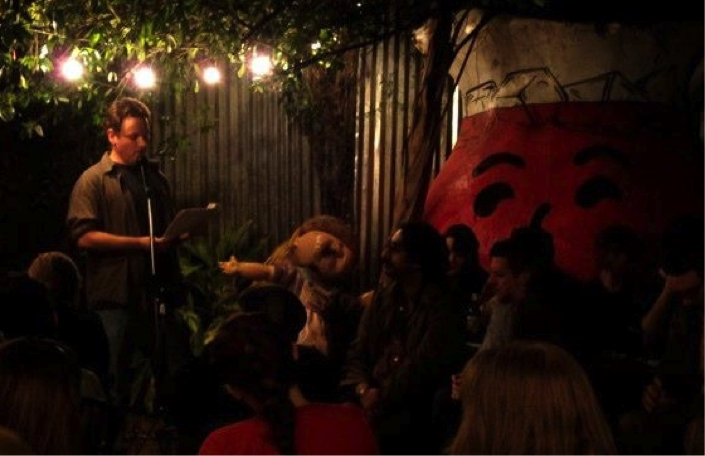
Sandra Cisneros’ “Mexican Movies” isn’t overtly about parenting. In the course of only eight paragraphs recounting an uneventful family night out at the movies, the story’s young narrator has a more appropriately child-like preoccupation with what’s happening immediately around her: onscreen (“It’s the one with Pedro Armendáriz in love with the boss’s wife, only she’s nothing but trouble and his problem is he’s just plain dumb”), what she can eat from the candy counter, the way the lobby has “thick carpets, red red, which if you drag your feet will make electricity,” the squeak of popcorn against her teeth, or the “burro noises” you can make if you blow through an empty jujube box.
Yet in every paragraph, the parents are there–not hovering intrusively, but always present, ready to gently guide the narrator’s actions while also allowing for autonomy and room to explore. When “the man starts undressing the lady onscreen,” the father gives the narrator and her little brother quarters for the lobby: “Hurry, until they put their clothes back on.” When she joins her brother running up and down the aisles with other kids, it’s also her job to make sure he doesn’t eat candy off the floor. Or, when they finally “roll ourselves up like a doughnut and sleep” in their chairs “the armrest [is] hard against our head until Mama puts her sweater there.”
That last moment of tenderness feels key to me, along with an almost throwaway detail at the end of the second paragraph: “A fat velvet rope across the stairs means you can’t go there.” Throughout this very short piece, the narrator has, in the best way, been constantly negotiating between what’s forbidden and what’s allowed—finding room for exploration and minor adventures, but also knowing there’s a safe, familiar place to return to. And this unending striving to balance freedom with security, isn’t that what every parent strives daily to achieve, and what every child ultimately struggles against as they grow older? For this night at least, and the span of this all-too-brief series of wonderfully-rendered moments, a perfect balance seems to be struck, allowing what I only imagine to be an all-too-fleeting sense of accomplishment in the life of a parent, the rare certainty that, at least for a little while, everything has been done right, in a moment perhaps only fully cherished in retrospect. As the narrator notes in the closing lines with the family’s drive home:
It’s nice to go on pretending with our eyes shut because here’s the best part. Mama and Papa lift us out of the backseat and carry us upstairs to the third floor front where we live, take off our shoes and clothes, and cover us, so when we wake up, it’s Sunday already, and we’re in our beds and happy.
Aaron Reynolds has published stories and essays in Willow Springs, Sonora Review, Third Coast, Laurel Review, and Gulf Coast. He received his M.F.A. in fiction writing from Western Michigan University, and completed his PhD at the University of Houston, where he continues to teach undergraduate creative writing.
*
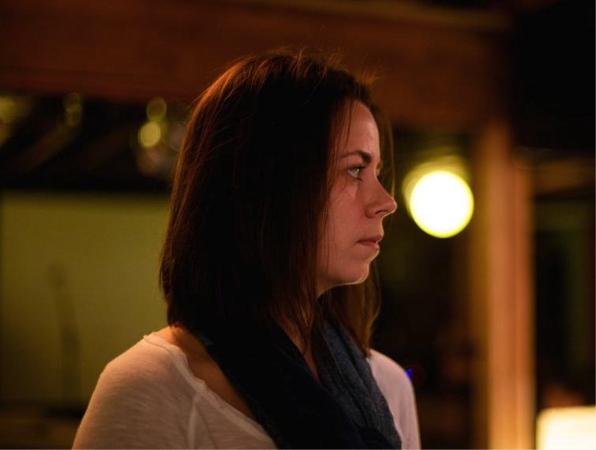
For the single, childless person to declare—in earshot of exhausted, child-rearing peers—that This or That is the most challenging aspect of parenting is like robbing a convenience store with a plastic gun and getting away with it. The childless perpetrator, who’s never once been subjected to that Frozen song, makes her idiotic, whimsical assessment, then jets off to yoga.
So maybe I’ll put it this way: The fact that parenting means it’s your job to explain to a small, pure-hearted being why things aren’t fair, why people are assholes, why few people seem to care about each other, or even know how to take care of themselves—that’s some powerful birth control. Trying to shield a child from the horrors beyond your door, while simultaneously trying to acclimate them to the truth of those horrors, is to set oneself up for failure.
But then there’s the mother in Antonya Nelson’s “Primum Non Noncere” (First Do No Harm), published in The New Yorker last month. This mother, Claudia—therapist to the self-mutilating—flies her Truth flag at all times, whatever the horror may be. When the family cat goes missing, Claudia tells her teenage daughter, Jewel, “‘He’s old. Cats go off to die when they’re old.’” In other words, don’t wait up.
She admits, aloud, that Jewel will be the prettier one. Not out of resentment or jealousy, but because “Claudia believed that airing the feelings you might be tempted to keep secret was the way not to be sabotaged by them.” Claudia runs headlong into—never away from—any indiscretion, the first sign of unseemliness. Things that might otherwise defy comprehension become rather simple when they’re laid out on the kitchen table (surrounded by a charming collection of antiques) and described for what they are. “What would she not say, in the name of telling the truth?” Jewel asks herself.
For Jewel, this unabashed insistence on honesty and calling-it-like-it-is works as an unrelenting but loving persecution: “Maybe all mothers existed in order to torment their daughters with news of the future.” But Claudia’s fearlessness at the world is outmatched only by the ferocity of her motherly love.
I mean, Jewel was allowed to draw on the kitchen walls as a child! And hanging in the kitchen ten years later, in a frame decorated with baby teeth and Scrabble tiles that spell Jewel’s name: a four-year-old’s rendering of the now-missing cat eating from his food bowl. Maybe this work of art survives only “because of the little pink asterisk that was Magic’s anus, Jewel’s childish candor,” but wow. That’s love. That’s saying: We’re going to hang cat buttholes in our kitchen because, simply, the world is filled with them. And this one, precious thing, is the one you made for me.
As Jewel’s brother tells her quite early in the story: Mom’s a badass.
Cecily Sailer writes occasionally about books for The Dallas Morning News and Texas Observer. On a daily basis, she coordinates literary and creative writing programs for the Austin Public Library Friends Foundation.
*
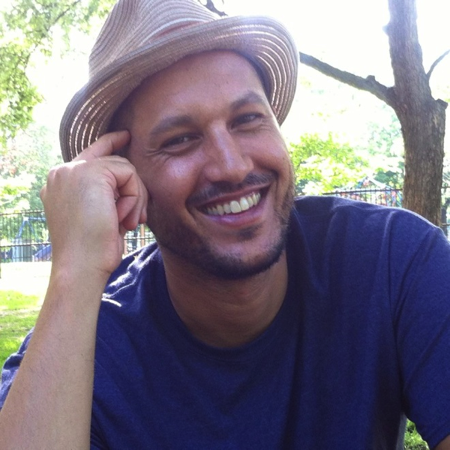
As an example of good parents, I offer José Arcadio Buendía and Úrsula Iguarán Buendía, the pater and mater familias of Gabriel García Márquez’s novel One Hundred Years of Solitude.
Readers (and parents!) familiar with the novel may object. José Arcadio and Úrsula, consumed most times with their own fascinations, often neglect their children in a way surprising and troubling to the contemporary American parent (or all parents, ever). José Arcadio, it will be readily admitted, displays an alarming propensity for forgetting about his kids. While their parents make candy animals, or attempt to turn gold into something other than a “large burnt hog crackling,” children in Macondo sometimes go unnoticed for days, or in the case of Rebeca Buendía, for decades.
Then why these two? Because despite their business (and their forgetfulness), they bequeath to their children the gifts of passion and wonder. José Arcadio gives his boys “his best hours.” He takes them into his workshop; he teaches them how to read his maps, decipher his drawings; he trains them in his alchemy; he speaks to them not only of what he knows, but of what he passionately imagines. And so we are not surprised, but pleased, I think, when at the moment of his presumed death—facing the firing squad—Colonel Aureliano Buendía does not remember any of his blind nights of love, does not remember the interminable wars in which he has fought, does not remember the fourteen assassination attempts, or the thirty-two failed uprisings, or the seventy-three ambushes, but instead remembers, with an all-consuming wonder, that “distant afternoon when his father took him to discover ice.”
The Buendías are far from perfect parents. They may not even be particularly good parents. And yet, these are parents who don’t sacrifice the passions and fantasies of their lives for the raising of their children. In our time that’s not only refreshing, it seems vital. After all, to show your kids the wonder in the world, you have to know where to find it.
Sunil Yapa lives in New York City, when he can afford it. This dispatch was filed from Aibonito, Puerto Rico, where he is finishing his first novel, Your Heart Is a Muscle the Size of a Fist.
*
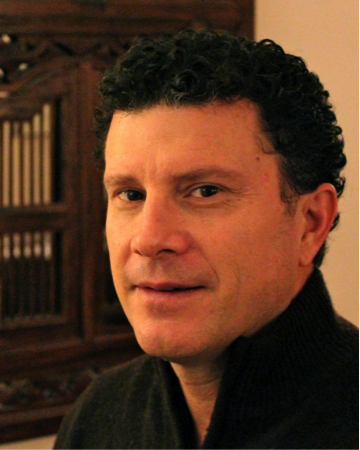
The worst parents in literature for me are the ones who hit closest to home. Characters who are most like our other possible selves when confronted with sudden and calamitous change—a collapsing marriage, the loss of a job, or being blindsided by a serious illness, let’s say. Possible selves who just might go off track for a while and make some truly bad choices. Possible selves who unintentionally put others at risk—even children—while fighting what they believe to be the good fight or reclaiming some imagined bit of self-respect. In other words, parents like us, with selfish desires routinely held in check until something inches us up to the line. We might only see momentary flashes of this “other”—a tight-faced expression in the mirror or an angry shouting match in front of our kids. Words, gestures that can’t be taken back. I remember years ago punching a wall in our hallway out of some parental frustration, not realizing it wasn’t sheetrock but cheap plaster, and having the fist-shaped crater confront me every morning after on the way out the door. Before we had it repaired and repainted, my then 5 year-old daughter took a pencil and delighted in scribbling ‘DAD’ in the crater, which, like so many things about parenting, is both hilarious and sad.
But for the most part, being meta-parents, we come to our senses, or a spouse or partner touches our shoulder, we take a break, and we don’t unwind fully, only momentarily. We apologize sheepishly, patch up the dent in the wall, and get on with things. But what happens when the wheels really do come off? When, for whatever reason, we inexplicably take things a step further? What if, because of a combination of our own drastic actions and the vagaries of chance and circumstance, we find ourselves on a cross-country Greyhound bus trip with two young children, heading who-knows-where? That’s what Jamie Mays does in Denis Johnson’s harrowing and beautiful novel, Angels, yet I have a hard time condemning her. Johnson’s use of close third person and lyrically precise language immerses us in Jamie’s careening life, her confrontation with her “other,” causing us to wonder: if everything took a wrong turn, couldn’t she be me?
Here we are on that Greyhound with Jamie Mays, hurtling through the night:
Around three in the morning Jamie’s eyes came open. Headlights on an entrance ramp cut across their flight and swept through the bus, and momentarily in her exhaustion, she thought it was a flaming head of a man whipping like a comet through the sleeping darkness of the travelers, hers alone to witness. Suddenly Miranda was awake beside her, jabbering in her ear, excited to be awake past bedtime.
Jamie pushed the child’s words away, afraid of the dark the bus was rushing into, confused at being swallowed up so quickly by her new life, fearful she’d be digested and spit out the other end in the form of an old lady too dizzy to wonder where her youth had gone. A couple of times she tried to shush Miranda because the baby was sleeping and so was everyone else on the bus, except the driver, she hoped—But Miranda had to nudge baby Ellen with her foot every two second because she wanted to play, right in the middle of Nevada in the middle of the night. “Randy,” Jamie said, “I’m tarred now, hon. Don’t wake up Ellen now.”
Miranda sat on her hands, and pretended to sleep, secretly nudging Baby Ellen with her foot.
“Move your foot, hon,” Jamie told her. “I ain’t playing. Move your foot now.”
Miranda feigned sleep and deafness, her foot jerking in a dream to jostle the baby.
“Move—yer—fut,” Jamie whispered fiercely, and grabbed her ankle and moved it. “You behave or I’ll tell the driver, and he’ll take you and put you off the bus, right out there in that desert. Right in the dark, with the snakes. You hear me?”
Lots of child endangerment follows—this isn’t a novel for the faint of heart or those in the midst of tumultuous change—and Jamie is truly deserving of a worst literary parent award, but you’ll find yourself cheering her on even as you want her as far away from those children as possible. And yet you can’t look away. That’s the power of the “other.”
Scott Blackwood is the author of three books of fiction, See How Small, We Agreed to Meet Just Here, and In the Shadow of Our House, and two books of narrative nonfiction, The Rise and Fall of Paramount Records Volumes 1 & 2. He’s a former Whiting Award recipient in fiction and 2015 Grammy nominee for his writing on music.
*
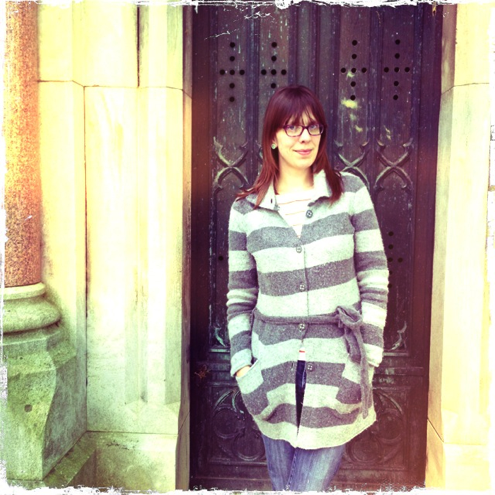
For terrible parents in literature, look no further than the children’s shelf, where the wicked stepmothers of the Grimm’s fairy tales send children into the woods to die, or poison them, or eat their lungs and livers. Meanwhile, the fathers in these stories (as in real life, often) somehow escape our scrutiny. Stepmothers steal the spotlight with their bloody, murderous plots; fathers quietly make terrible bargains with their children’s lives.
In The Maiden with No Hands (which Disney will never make into a movie), the devil tricks a man into trading his daughter for piles of gold. But when he tries to collect, he can’t take the girl because her hands are too clean (what could THAT mean??). Cut off her hands! the devil commands. Here things go off the rails, parenting-wise: “So the father went to the girl and said, ‘My child, if I do not chop off both your hands, then the devil will take me away, and in my fear I have promised him to do this. Help me in my need, and forgive me of the evil I am going to do to you.’ She answered, ‘Dear father, do with me what you will. I am your child,’ and with that she stretched forth both her hands and let her father chop them off.” Wow.
I thought of fairy tale fathers when I read Roxane Gay’s An Untamed State, which I devoured in one sitting. Mireille Duval is kidnapped in front of her father’s ornate gated estate in Port-au-Prince, Haiti. Sebastien, a self-made man, refuses to give in to the kidnappers’ demands, while across the city, his daughter suffers unspeakable abuse. His fatal flaw is that he believes he can find a way to avoid sacrifice and keep everything: his fortune, his pride, his daughter. Of course he can’t. Unwittingly, he’s made a classic fairy tale bargain—his child’s life for his own wealth. When Mireille is finally freed, she says of her father, who she once adored, “He could barely look at me. Later he would tell me the bruises made him sick to his stomach. I would say, ‘Your hands are on them.’”
It’s an unflinching portrait of betrayal, but Gay makes it impossible to hate Sebastien. She forces us to see the panorama of his life, his reasons for doing what he does. He’s not a flat fairy tale villain, but a man who has to live with his mistakes. Fairy tales go down easy, with their clear moral lessons and pat endings where everyone gets what they deserve. This novel doesn’t. If you pick up “An Untamed State,” Sebastien Duval will stick in your throat for a long time, because he is human, and he fails, and he breaks your heart.
Or you can retreat to the comfortable territory of evil stepmothers. For that, I recommend The Twelve Brothers, where the stepmother steals the young queen’s newborn while she sleeps, smears her mouth with blood, and frames her for eating her own baby. Devious!
Alyssa Knickerbocker’s work has appeared most recently in Alaska Quarterly Review, West Branch, American Short Fiction, The Carolina Quarterly, Brooklyn Magazine, and The Best of the West: New Stores from the Wide Side of the Missouri. She held the Halls Emerging Artist Fellowship at the Wisconsin Institute for Creative Writing and the Axton Fellowship in Fiction at the University of Louisville. A novella, “Your Rightful Home,” is published by Nouvella Books (www.nouvellabooks.com). She currently lives with her husband and son on the Kitsap Peninsula in Washington State, where she’s working on a novel set in the area. Find her at www.alyssaknix.com.
*

I like to think I’m a good parent. And yet sometimes I stomp around and raise my voice and threaten to carry the television out to the garage (occasionally making good on this threat, unplugging and untangling the cords as my two boys hang on my shirt and plead with me to stop). If anyone walked past my house and glanced in my window, I’d probably look like a raving lunatic. They might even think I was being a shitty parent. Maybe they’d be right, though I’d argue that context is everything. Sometimes it’s hard to get my kids’ attention. Sometimes I’m exhausted or stressed from work that is piling up. I’d want to tell the person on the sidewalk, “It’s not always like this” or “This never happens when I’m rested and relaxed.”
Parenting is never easy, but it’s a lot more difficult when your own basic needs are not being met. Sure, all the money in the world won’t make your kid sleep at night, but if you’re growing an ulcer worrying about bills, you’re bound to take that stress out on someone, especially if that someone is whining about crackers. I say that as a middle-class person who owns a home. A lot of parents aren’t so lucky.
No story I’ve read recently better illustrates the effects of economic bad luck than Murray Farish’s “Inappropriate Behavior,” the final story of his excellent collection of the same name. In it, George Putnam has lost his job in the midst of The Great Recession. Times are tough (he can’t pay his bills, can’t afford to keep the house, can’t get a job interview), and on top of it all, his eight-year-old son Archie is a mess. He’s not technically ADD or ADHD since that diagnosis would require his public school to make allowances for him. Rather, his behavior is simply bad, often unacceptable. Under the best of circumstances, any parent would be at a loss for what to do. But George Putnam isn’t living under the best of circumstances.
As a result, George doesn’t behave well. He despairs. Instead of attending job search meetings, he stays in his pajamas and watches TV. He takes his son to a park but doesn’t pay attention and loses him. By the story’s end, George and his family are living in a run-down apartment on a bad side of town. His son has been kicked out of school for behavior problems, and so George stays at home with him. Then, one day, George gets a call for a job interview. There is no one to watch his son, so George tells him, “Don’t answer the phone, stay away from the windows, and don’t open that door. Do you understand? Just stay right here with Mr. Carrots and play Mario.” Then he leaves.
It’s tempting to call this shitty parenting. Perhaps, you think, Child Protective Services ought to pay a visit to such a person. But context matters. George has a choice: stay at home with his child or get a job. Both are necessary. Sometimes shitty parenting is the least shitty of the options facing a desperate person. As parents, we want so badly to do the best for our children, and our fear is that, one day, we will fail. “Inappropriate Behavior” offers an uncomfortable reminder that, for too many parents, the inequalities of American economics make that fear a daily reality.
Michael Noll is the editor of the craft-of-writing blog, Read to Write Stories. His work has appeared in American Short Fiction, The Chattahoochee Review, The Owls, Huffington Post, and The Good Men Project. He served as the writer in residence at the Katherine Anne Porter House. He currently lives in Austin with his wife and two kids and teaches writing at Texas State University.
*
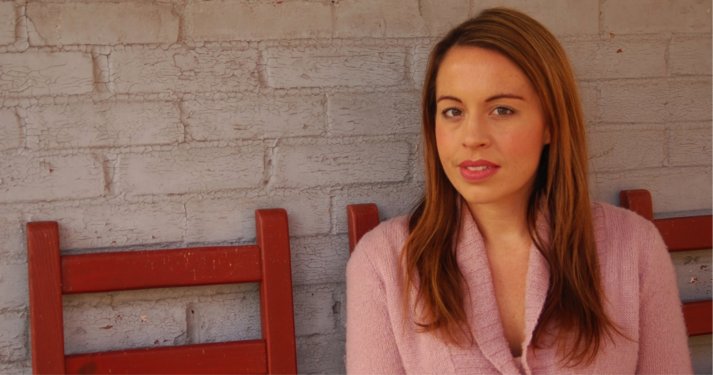
In George Saunders’ marvelous story “Victory Lap,” we enter the tortured mind of Kyle Boot, a teenager who witnesses the attempted abduction of his neighbor and childhood friend, Alison. At once we see how his overbearing parents dominate not only his external world—it’s verboten to track dirt on the rug, verboten to be barefoot inside; shoes must be left on the Shoe Sheet with toes pointed towards the door; the “clocklike wooden indicator” must show which family members are in and out of the house, at all times—but his spirit, as well. Kyle fantasizes about minor acts of rebellion, and is then overcome with guilt or terror at the thought of possible repercussions. The mere idea of swearing prompts an imagined scolding from his father: “Be a man: if you want to swear, swear aloud.” (This bears frightening resemblance to a moment later in the story in which we learn of the abuse that Alison’s attacker endured as a child: “Melvin [his stepfather] appeared in his mind. On Melvin’s face was the look of hot disappointment that had always preceded an ass whooping, which had always preceded the other thing. Put up your hands, Melvin said, defend yourself.” In this brief, heartbreaking anecdote, the revelation of the attacker’s torment enables us to feel empathy for him, at the same time his abhorrent behavior is still shown to be inexcusable). Though Kyle’s parents call him “Beloved Only” and send weekly “braggy emails to both sets of grandparents,” they seem to care nothing about his interests or desires; his father frequently threatens to make him quit the cross country team, to which Kyle responds desperately, “I’m begging you, it’s the only thing I’m decent at!” “Anyone can jog,” his father says—perhaps unaware of how belittling this comment is to Kyle, perhaps not caring—“Beasts of the field can jog.”
“Victory Lap,” while making clear the potential that all our lives have for tragic or horrifying events, also shows the resilience of the human spirit. When Kyle’s moment of truth comes and he must decide whether or not to take action and try to help Alison, we see how his rage has the potential to either destroy or to liberate him, as he struggles to silence the discouraging voices of his parents in his head. Saunders concludes the story with Alison’s parents’ attempts to comfort her: “You did so good, Mom said. Did Beautiful, Dad said”—a message that we all, at some point in our lives, yearn to hear. So simple, yet so elusive: this sense that we have fulfilled our potential in our parents’ eyes. As someone just beginning to bumble my way through parenthood, I’m realizing every day how delicate this dance is—the need to both nurture and protect my son, without stifling him, and to remember always to accept him for the person he is, not the person I want him to be.
Meaghan Mulholland’s fiction has appeared in Playboy, Five Chapters and Post Road, among other publications. She is currently working on a collection of linked stories and a novel set in Sicily. More information can be found at her website, meaghanmulholland.com.
*
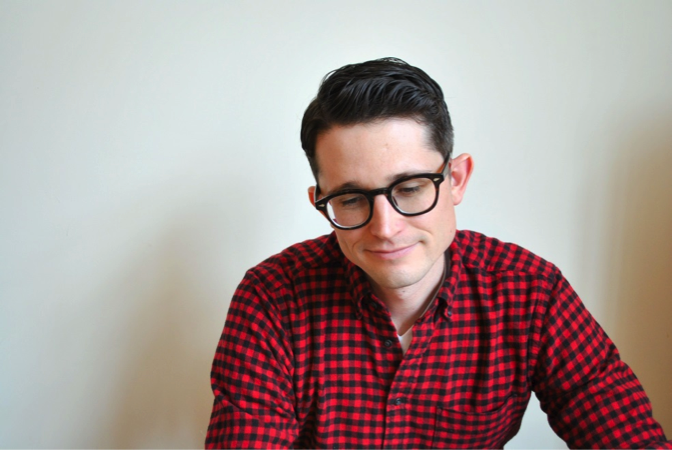
I know I’m supposed to talk about crappy parents in literature, and normally I’d be more than happy to rattle off a bunch of names from that seemingly endless list, but since my wife is due with our first child in four days* I’m feeling a little superstitious about casting stones.
I will say there’s nothing like impending parenthood to make you interested in reading about it, and, if you’re like me, just as quickly nauseated by the manuals and how-to guides and online chatter that makes up so much of what I guess you could call parenting culture. I think this is because so often these discussions of parenthood are couched in platitudes. It’s either the hardest thing you’ll ever do, or the best, or both; it’s either the most exhausting or the most exhilarating; invariably it changes you in ways you can’t possibly understand. But almost never do I feel as though the substance of the experience—the messy, complex reality—is being articulated. Perhaps this originates in each writer’s loyalty to their own kids, but to me it’s more likely a cultural pressure, a powerful sense of the right and wrong ways we believe we should feel in order to be considered good parents.
So it probably explains why, when I broke down and started the first volume of Karl Ove Knausgaard’s My Struggle and came across the following passage, I felt something akin to a persistent itch being scratched:
Even if the feeling of happiness [my children] give me is not exactly a whirlwind but closer to satisfaction or serenity, it is happiness all the same. Perhaps even, at certain moments, joy. And isn’t that enough? Isn’t it enough?…When I look at a beautiful painting I have tears in my eyes, but not when I look at my children. That does not mean I do not love them, because I do, with all my heart, it simply means the meaning they produce is not sufficient to fulfill my whole life.
My god, what a thing to say! If Knausgaard’s six-volume autobiographical novel seems to make people uncomfortable it’s in the way he is so open about his private life, and particularly the lives of those around him—his wife, his parents, his editor, his neighbors. But the line that most writers seem unwilling to cross has to do with their kids, and yet here there seems to be no such barrier. How could he make these thoughts and feelings public—the very moments of ambivalence as a father that seem unspeakable in parenting culture—especially in a way that could someday hurt his children? Hasn’t some code been broken? Is his artistic expression more important than his kids’ privacy and trust?
But here was someone saying precisely the kind of thing that I felt was being omitted in even the most intimate portrayals of parenthood, and I have to say it was exhilarating. Throughout the thousand-plus pages of the first three books, I found myself transfixed and relieved by the nakedness of his depiction of his life as a father, its joys and frustrations, what he describes as, “The immense intimacy you have with [your children], the way in which your temperament and mood are, so to speak, woven into theirs, such that your own worst sides are something you can no longer keep to yourself, hidden, but seem to take shape outside of you, and are then hurled back. The same of course applies to your best sides.”
It made me wonder what it is about parenthood that, even in the realm of literature, makes us so ready to categorize parents as good or bad. Isn’t it both, always, simultaneously? Isn’t that the complexity that good writing can describe? If social life so often feels like a project of concealment, literature for me has always been its antidote, perhaps the only place in everyday life where the articulation of the truth, however uncomfortable, is both its primary goal and the basis of its pleasure.
Maybe Knausgaard’s children will never forgive him for feeling these things and for publishing them in an international bestseller—essentially for choosing his art over them (if that’s even the choice). Maybe this makes him a crappy father. But as an expectant parent, this candidness was to me like secret knowledge, an articulation of many of the dynamics I had always suspected but had never been able to name.
Ted Thompson’s first novel, The Land of Steady Habits, was published by Little, Brown last March.
* Editor’s Note: Between the time this was written and the time it was published, Ted moved from expectant to full-blown dad. Congrats, Ted!